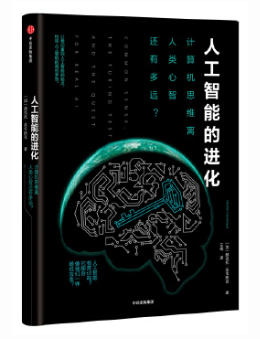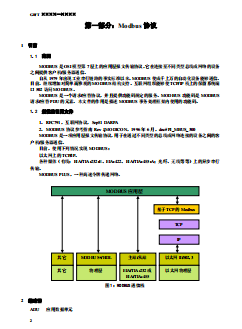人工智能经常被人们认为是计算机科学中的一门高度复杂甚至令人生畏的学科。长期以来人工智能方面的书籍往往包含复杂矩阵代数和微分方程。本书形成于作者多年来给没有多少微积分知识的学生授课时所用的讲义,它假定读者预先没有编程的经验,并说明了智能系统中的大部分基础知识实际上是简单易懂的。本书目前已经被国际上多所大学(例如,德国的马德堡大学、日本的广岛大学、美国的波士顿大学和罗切斯特理工学院)采用。
如果你正在寻找关于人工智能或智能系统设计课程的浅显易懂的入门级教材,如果你不是计算机科学领域的专业人员,而又正在寻找介绍基于知识系统最新技术发展的自学指南,本书将是最佳选择。
基于规则的专家系统
模糊专家系统
基于框架的专家系统
人工神经网络
进化计算
混合智能系统
知识工程
数据挖掘
封面图

目录
- 1 Introduction To Knowledge-Based Intelligent Systems
- 1.1 Intelligent Machines, Or What Machines Can Do
- 1.2 The History Of Artificial Intelligence, Or From The‘DarkAges’To Knowledge-Based Systems
- 1.3 Summary
- Questions For Review
- References
- 2 Rule-Based Expert Systems
- 2.1 Introduction, Or What Is Knowledge
- 2.2 Rules As A Knowledge Representation Technique
- 2.3 The Main Players In The Expert System Development Team
- 2.4 Structure Of A Rule-Based Expert System
- 2.5 Fundamental Characteristics Of An Expert System
- 2.6 Forward Chaining And Backward Chaining Inference Techniques
- 2.7 MEDIA ADVISOR: A Demonstration Rule-Based Expert System
- 2.8 Conflict Resolution
- 2.9 Advantages And Disadvantages Of Rule-Based Expert Systems
- 2.10 Summary
- Questions For Review
- References
- 3 Uncertainty Management In Rule-Based Expert Systems
- 3.1 Introduction, Or What Is Uncertainty
- 3.2 Basic Probability Theory
- 3.3 Bayesian Reasoning
- 3.4 FORECAST: Bayesian Accumulation Of Evidence
- 3.5 Bias Of The Bayesian Mesod
- 3.6 Certainty Factors Theory And Evidential Reasoning
- 3.7 FORECAST: An Application Of Certainty Factors
- 3.8 Comparison Of Bayesian Reasoning And Certainty Factors
- 3.9 Summary
- Questions For Review
- References
- 4 Fuzzy Expert Systems
- 4.1 Introduction, Or What Is Fuzzy Thinking
- 4.2 Fuzzy Sets
- 4.3 Linguistic Variables And Hedges
- 4.4 Operations Of Fuzzy Sets
- 4.5 Fuzzy Rules
- 4.6 Fuzzy Inference
- 4.7 Building A Fuzzy Expert System
- 4.8 Summary
- Questions For Review
- References
- Bibliography
- 5 Frame-Based Expert Systems
- 5.1 Introduction, Or What Is A Frame
- 5.2 Frames As A Knowledge Representation Technique
- 5.3 Inference In Frame-Based Experts
- 5.4 Methods And Demons
- 5.5 Interaction Of Frames And Rules
- 5.6 Buy Smart: A Frame-Based Expert System
- 5.7 Summary
- Questions For Review
- References
- Bibliography
- 6 Artificial Neural Networks
- 6.1 Introduction, Or How The Brain Works
- 6.2 The Neuron As A Simple Computing Element
- 6.3 The Perceptron
- 6.4 Multilayer Neural Networks
- 6.5 Accelerated Learning In Multilayer Neural Networks
- 6.6 The Hopfield Network
- 6.7 Bidirectional Associative Memories
- 6.8 Self-Organising Neural Networks
- 6.9 Summary
- Questions For Review
- References
- 7 Evolutionary Computation
- 7.1 Introduction, Or Can Evolution Be Intelligent
- 7.2 Simulation Of Natural Evolution
- 7.3 Genetic Algorithms
- 7.4 Why Genetic Algorithms Work
- 7.5 Case Study: Maintenance Scheduling With Genetic Algorithms
- 7.6 Evolutionary Strategies
- 7.7 Genetic Programming
- 7.8 Summary
- Questions For Review
- References
- 8 Hybrid Intelligent Systems
- 8.1 Introduction, Or How To Combine German Mechanics With Italian Love
- 8.2 Neural Expert Systems
- 8.3 Neuro-Fuzzy Systems
- 8.4 ANFIS: Adaptive Neuro-Fuzy Inference System
- 8.5 Evolutionary Neural Networks
- 8.6 Fuzzy Evolutionary Systems
- 8.7 Summary
- Questions For Review
- References
- 9 Knowledge Engineering And Data Mining
- 9.1 Introduction, Or What Is Knowledge Engineering
- 9.2 Will An Expert System Work For My Problem
- 9.3 Will A Fuzzy Expert System Work For My Problem
- 9.4 Will A Neural Network Work For My Problem
- 9.5 Will Genetic Algorithms Work For My Problem
- 9.6 Will A Neuro-Fuzzy System Work For My Problem
- 9.7 Data Mining And Knowledge Discovery
- 9.8 Summary
- Questions For Review
- References
- Glossary
- Appendix
- Index


















